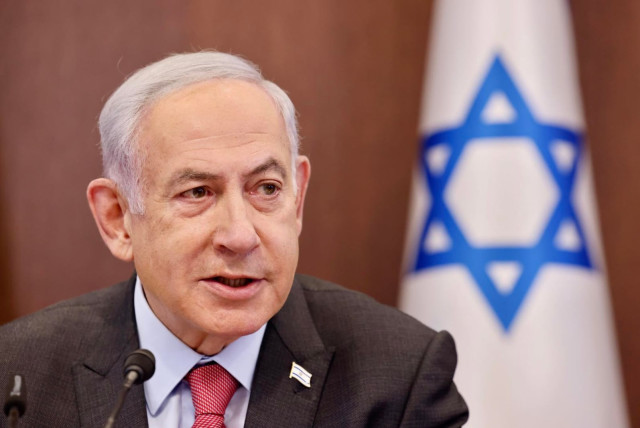Israeli leaders should respond to the public's core questions - opinion

Style and credibility of leadership are important to the nation, much of which is exhausted by decades of deliberate divisiveness. But changing those is not enough.
The pollsters who often call during dinner recently added a question: Would you vote for a new right-wing party, led by any combination of Naftali Bennett, Yossi Cohen, Avigdor Liberman, and Gideon Sa’ar, which presumes to replace Benjamin Netanyahu’s Likud?
This is not the place to wonder why almost everyone who worked closely with Bibi feels duty-bound to remove him from office – perhaps they are simply envious? I will instead ask what is meant by “the new Right” or “moderate Right” or any other vague description.
Other than a change in style, the public deserves to know what that fresh Right is offering regarding a central question – the future of the territories (occupied, liberated, conquered, Judea and Samaria – take your pick) which Israel has controlled since 1967, three-quarters of its 76 years.
There is no question – Jordan joined Egypt and Syria in attacking Israel, and our war was entirely justified. Within six days, Israel controlled, inter alia, the West Bank, which had been under Jordanian rule since the war in 1948. Subsequently, Israel held talks with Jordan, then came Oslo, and it was agreed that negotiations would determine the future of the territories.
There is no question – they are the cradle of the nation. A shepherd with his flock, a wandering ass, vineyards, goats to provide milk, and figs for honey – it is easy to imagine Abraham, Saul, David and the prophets traversing that landscape.
Against this background, less than a year after the victory, a Passover seder was held in the Park Hotel in Hebron. Since then, civilian Jewish settlement in the territories has expanded, at the initiative of the government or with its encouragement or tacit approval.
There is no question – Israel, like any other country, has the right to security. But locals also have rights, and international law strives to balance them. It is forbidden to move civilian populations from occupied territories to the territory of the occupier and vice versa, except for security needs.
But currently, the (unprecedented) additional minister in the Defense Ministry bases his decisions regarding the settlements on civilian considerations. Moreover, Israel was careful to define its presence as “belligerent occupation” which by definition is temporary. With the passage of time, it is fair to ask when temporary becomes permanent.
There is no question – many in the territories are no fans of Israel, and harbor bad intentions. But as is obvious to anyone who participated in any moderation – in the family, at work, even in an apartment building – problems are not solved by pointing fingers and each side is expected to look inward. While “but they…” may be true, every intermediary will insist: “What is your role in the situation? Do you have suggestions on how to proceed?”
Voters are entitled to know the views of those claiming leadership
MY QUESTION is not directed at those who believe that this is our promised land; that no one else has any standing, and locals must acknowledge that; world opinion is irrelevant; we will manage alone, and so on.
Rather, other voters are entitled to know if those new claimants to leadership share this view. If so, what is the difference between them and the “extreme Right”? If not, what is their vision for the non-Israelis in the territories?
Barring territorial compromise, there are only two possibilities. One is continuing Israeli civilian presence (not to be confused with a security presence) where the standing of locals resembles apartheid. The other is granting them equal rights, and hence the end of Israel as a Jewish state.
Polls are clear that the current government has lost the support of the majority of Israelis. What, if at all, will change if those desiring the throne will be crowned? Sa’ar, Liberman, Cohen, Bennett – how do you imagine the territories in 10 or 20 years? Do you think the current situation can be maintained indefinitely, without international consequences – and how do you plan to deal with them?
Style and credibility of leadership are important to the nation, much of which is exhausted by decades of deliberate divisiveness. But changing those is not enough. It is essential to ask questions and receive answers about the core questions affecting Israel’s future.
The writer was Israel’s first ambassador to the Baltic states after the disintegration of the Soviet Union, ambassador to South Africa, and congressional liaison officer at the Israeli embassy in Washington. She is a graduate of Israel’s National Defense College.
Jerusalem Post Store
`; document.getElementById("linkPremium").innerHTML = cont; var divWithLink = document.getElementById("premium-link"); if (divWithLink !== null && divWithLink !== 'undefined') { divWithLink.style.border = "solid 1px #cb0f3e"; divWithLink.style.textAlign = "center"; divWithLink.style.marginBottom = "15px"; divWithLink.style.marginTop = "15px"; divWithLink.style.width = "100%"; divWithLink.style.backgroundColor = "#122952"; divWithLink.style.color = "#ffffff"; divWithLink.style.lineHeight = "1.5"; } } (function (v, i) { });

